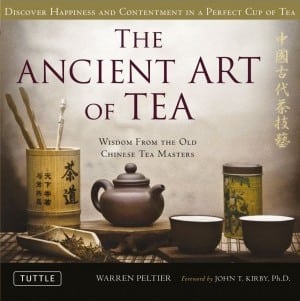 I was pleasantly surprised by this book. I didn’t go in with high hopes (not to say they were low, but I cracked it with a pretty neutral expression); though, I did notice the “Tuttle” stamp, and heck, they publish a lot of gems. And that’s what I found this to be. A gem. This one was a gift from my mom–she picked it up on the ferry as a birthday gift a few years back (don’t judge, I’ve got a large book backlog), which is part of the reason I didn’t expect much. Ferry giftshop literature.
I was pleasantly surprised by this book. I didn’t go in with high hopes (not to say they were low, but I cracked it with a pretty neutral expression); though, I did notice the “Tuttle” stamp, and heck, they publish a lot of gems. And that’s what I found this to be. A gem. This one was a gift from my mom–she picked it up on the ferry as a birthday gift a few years back (don’t judge, I’ve got a large book backlog), which is part of the reason I didn’t expect much. Ferry giftshop literature.
When you read the synopsis and opening words, you get the feeling the book will be, literally, just a bunch of quotes. I figured the run-of-the-mill types; Thoreau and Dickens and such (it says right there on the front cover, “Old Chinese Tea Masters”, AJ). Once I started flipping through it I realized my mistake, because it’s definitely a cohesive work with sections and actual paragraphs.
The opening word felt a little pretentious, because everyone claims to be a tea expert, and Warren Peltier doesn’t ring a bell. Yeah, I know that sounded cocky. I started to drop the impression, but I guess I can be pretty wary with books. Especially when they’re about countries other than my own, because you never know the perspective. Peltier discusses some of the problems with current translations, which was interesting, as well as his process and research. The back inside of the dustcover also lists his credentials, so consider me Told.
The heart of the book is divided into key chapters: Art of Tea (hah), Water for Tea, Preparing Fire for Tea, The Taste of Tea, Tea Etiquette, and Refinement in Tea. This is where the book gets interesting. Each chapter (while further broken down into a few key topics) outlines the views, and includes long passages from, the Classics of Tea. If you go to Appendix 3, you’ll get a full list of the Classics used, and it’s a solid (two page) list.
In most chapters, you’ll find the Classics agree on main points. To the point that you’ll see the same thing repeated over and over between passages (and often times one Classic quotes another Classic, which is a bit redundant but I’m not complaining). If you take anything away from “Water for Tea”, it’ll be “Mountain water is good, spring water is satisfactory, well water is bad”; add to this “stalactite water is best” and maybe “Plum Rain is desirable”. But only during certain times. Snow is bad.
On that note, read the endnotes. I spent the entire book puzzling over what could POSSIBLY make rain “poisonous” outside of the Plum Rain season, because I hadn’t bothered to flip right to the endnotes when it said to. They give a lot of context, and are pretty thorough.
From Preparing Fire for Tea, know that charcoal is best, dry woods are acceptable, resinous woods are an absolute no-go, and don’t even think about burning old rotted wooden utensils. Pretty straightforward. Smoke + strong odors = bad. The chapters go on from there, but I won’t spoil any more.
If you don’t have the means to obtain many of the tea classics by hand (and many of them don’t have easily obtainable translations), I’d really recommend this book. A lot of the information in it is probably covered (in some manner or another) in other tea books, but this one focuses on the facts cited in the Tea Classics specifically, and it’s by far the most organized tea book I’ve read. It also contains quotes and passages from many previously-untranslated classics (so it claims).
All in all I think it’s a good book to have, and on the pro side it’s small, slim, and fairly easy to find (I’ve seen it around, at least). Don’t judge a book by its cover (a cautionary tale by AJ).
**This is definitely the fastest I’ve written a review; I had it half-finished before I’d even finished reading the book.




01/04/2015 at 12:20 PM
Added to my personal shopping list ;)